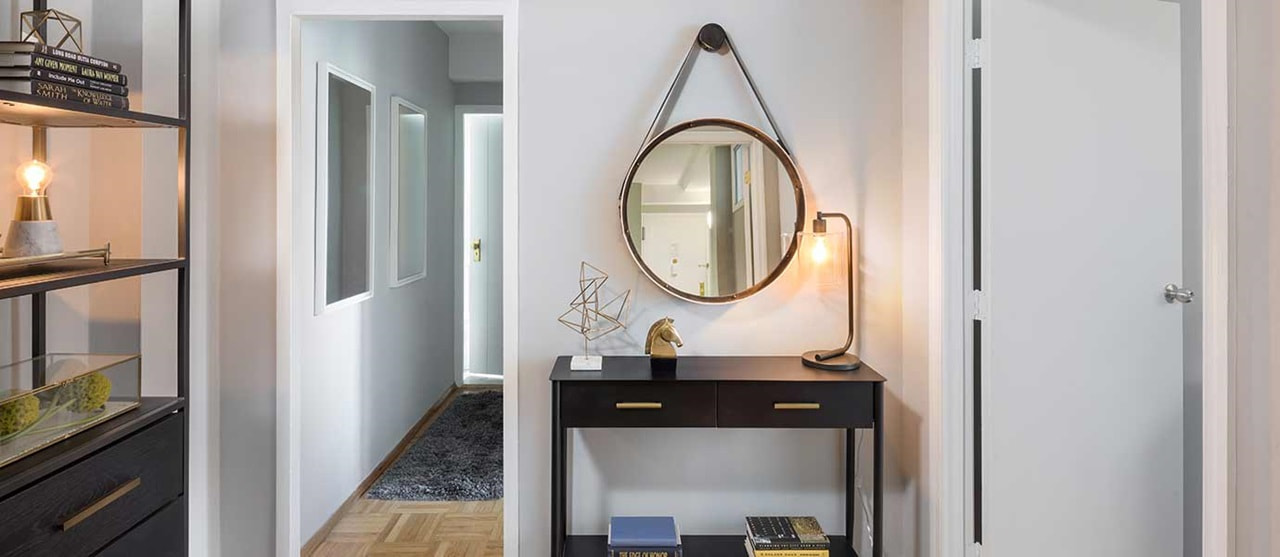The right to privacy is an important concern when renting an apartment. Many renters wonder if a landlord is allowed to enter their apartment at any time and without notice. Here's what you need to know.
Can a Landlord Enter Your Apartment at Any Time?
While laws vary based on state and city, there are general rules that are consistent. The right of a landlord to enter an apartment follows these three basic rules:
- Proper Notice Must Be Given
A landlord must give a tenant advance notice before entering a residence. The standard procedure states that such notice has to be made at least 24 hours in advance and at a reasonable time of day.
However, please note that a landlord can enter unannounced in cases of emergency or when it appears that a residence has been abandoned by the tenant.
Abandonment can be defined as a prolonged absence from a residence without any explanation provided to the landlord. - A Reason For Entry Must Be Given
Even with advance notice, a landlord must explain the reason for requesting access. Leases often list specific situations where the right to entry includes clearly defined tasks or practical purposes.
Reasons for entry include the following:
- General repairs and upkeep
- Inspections required due to local ordinances
- Safety inspections both general and legally required
- Apartment showings for other prospective renters after a non-renewal has been tendered
If a landlord has a legitimate belief that a lease is being violated (for example: occupants not on the lease staying in the apartment, unauthorized pets, etc.) - Tenant Consent Must Be Given
Before a landlord can enter a residence, the tenant must give permission for them to do so. This does not need to be in writing or overly formal and a verbal agreement is all that is required.
However, there are some cases where a tenant may not want a landlord to enter their apartment.
Much like a landlord’s request for entry must be reasonable, a tenant's refusal must also be reasonable.
For example, requesting entry be moved to a more convenient date and time is reasonable as is the tenant requesting they be home whenever an inspection, repair, or visit is being conducted. In such a case, it is advisable that a tenant consult their state’s right to entry laws as this can vary depending on location.
StuyTown classic finish kitchen
Know Your NYC Tenant Rights
Residents and tenants in New York City should take comfort in knowing they are entitled to many rights relating to the safety and quality of their housing.
- If I go on vacation, can I rent out or sublet my NYC apartment on Airbnb?
The city’s laws ruling Airbnb rentals are complicated. In short, it's illegal under the New York State Multiple Dwelling Law to rent an apartment on Airbnb in a building with three or more units for less than 30 days, unless the owner or leaseholder is present. If you’re a renter, check your lease and talk to your landlord before renting out your unit. Violations may result in fines or eviction by the landlord.
- What happens if there’s a maintenance problem?
Your landlord is required by law to keep your building and unit in habitable condition and to take care of important maintenance, such as a leaky roof or a broken heater. Contact your landlord about the needed repair. If the owner does not respond, you have several important legal rights.
Residents have the right to withhold rent until repairs are made, and the right to “repair and deduct”—that is, to hire a repairman to fix a serious defect that makes a unit unfit (or buy a replacement part or item and do it yourself) and deducts the cost from your rent.
If your landlord is unresponsive, you can file a complaint by calling 311 or 212.504.4115. Learn more about your rights and how NYC Housing Preservation & Development (HDP) can help.
- Which roommates will be responsible if we don’t make rent?
Rental agreements generally don't entail how rent is to be split between roommates.
If your roommate fails to pay rent, you're still responsible for paying the full amount. If you fail to do so, the landlord has the right to evict all of you. You may consider creating a roommate agreement (upon signing the lease.) This will outline agreeable terms for how the rent will be divided and who will write the check, etc. While it may not be legally binding, the paperwork can help enforce financial agreements. - Are bed bugs the tenant’s or the landlord’s responsibility?
The right to a bedbug-free environment is included in the city's Administrative Code, which names bedbugs in the list of insects a landlord is legally obligated to eradicate. Bedbugs are considered hazardous and must be removed by the landlord within 30 days.
Professional landlords will take extreme action and move quickly when bed bugs are found. Under the NYC Bed Bug Disclosure Act, landlords must notify prospective tenants in writing about any bed bug infestations that have occurred in their building in the past year.
- Where can I get more legal information about tenant rights in NYC?
Check out the New York City Rent Guidelines Board. This agency provides comprehensive, up-to-date tenant and landlord information and rights.

